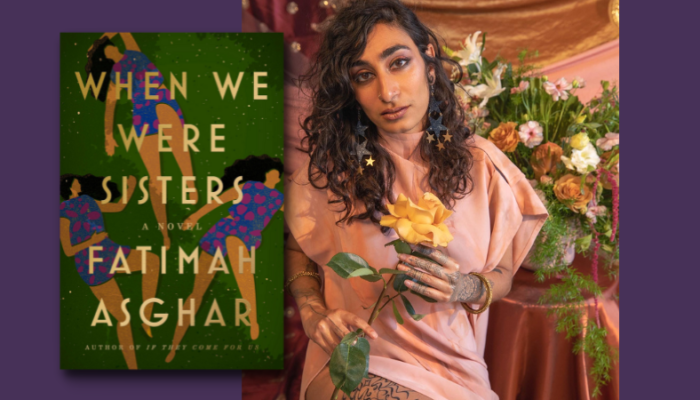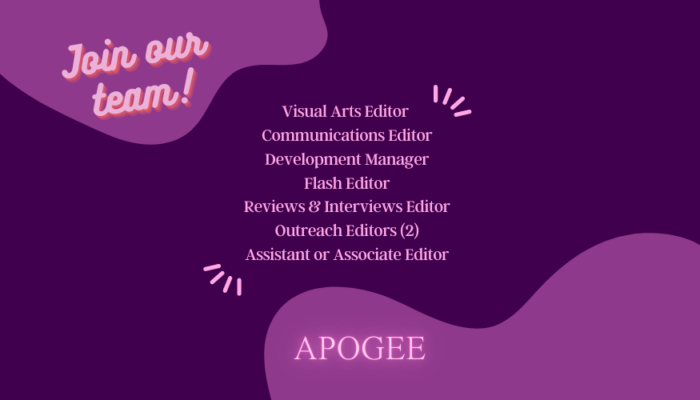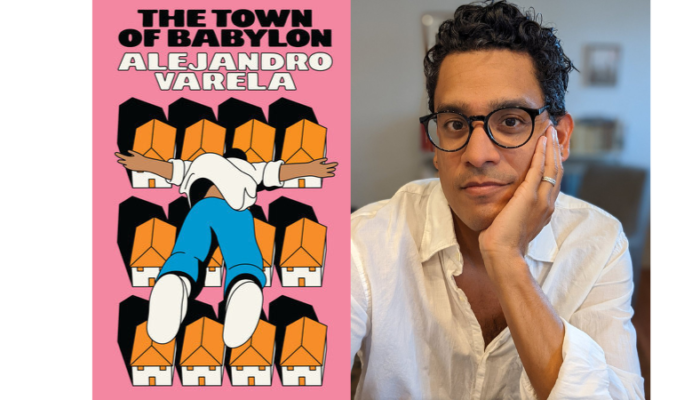Battling Tsundoku and Charlie Rose (An excerpt)
By Alejandro Varela
Toni
I ran into Toni Morrison once on a Beaux-Arts staircase in a sprawling building full of office suites, classrooms, and lecture halls shamelessly named after people whose primary accomplishment in life had been the accumulation of wealth. It was a couple of hours before a guest lecture that she was about to give, I later learned. The building was empty, except for her and I and her small retinue. She had an aura—nothing paranormal, but how could I possibly know for sure? Auras might be a natural consequence to having your voice validated so indisputably and overwhelmingly. Hi, she responded to my blank stare midway up the spiraled, neo-classical single helix. We shared the same step. We were Guanine. Paradise had just debuted to acclaim, but not the same acclaim of Beloved. I hadn’t read either.
The next day I awoke steeped in regret. I’d missed a unique opportunity to embark on a lifelong friendship with a living legend. I set out to read all of Morrison’s books, in case there was a next time. The campus store didn’t have Tar Baby in stock, but I bought Paradise and Beloved and Jazz. I bought Tar Baby ten years later, ten years ago. I haven’t read any of them yet.
Not long ago, during a lost afternoon of internet browsing, I found Morrison again. Across the round, stained oak sat Charlie Rose, misguided, lacking self-awareness, with index cards.
“Well, will you?” he asked in reference to a Bill Moyer question from years before, “Will you write a novel that’s not centered about race?”
I realized then, that when the written world is unfamiliar to the reader, he will assume the author has an agenda.
I also found a New York Public Library-hosted conversation between Morrison and Angela Davis. Both videos filled me with vasculature-constricting relief at not having engaged Morrison on that staircase. I wouldn’t have known to be any better than Charlie Rose when I was nineteen.
Angela
A few years ago, I waited for Angela Davis on the cold corner of Broadway and Cedar Street. I had a cup of tea pressed tightly between my hands, steam rising. She likes peppermint, said our intermediary in a text message. The anticipation of introducing her to the throngs of Occupiers that filled Zuccotti Park caused me to fidget. Public speaking to an audience greater than three was trying for me; this group was nearer to one thousand. I was also anxious about meeting a leftist deity, and conflicted because the organizers of this leaderless movement had injected into all of us a fear of celebrity. We stand on no one’s shoulders, they said. Which, in some ways, hadn’t allowed us to see the police marching in our direction. But that was weeks away. In the meantime, I was standing on a corner waiting for the iconic image of Black Power to step out of a taxi. A recent Swedish documentary containing rare footage of interviews with Davis in prison had introduced her to a subset of a new generation, and it had reminded me of what she looked like. Her unassailable arguments were timeless and fierce in the film. They belied the friendly and clumsy email exchanges that we’d had in the previous week.
I handed her the tea. In vivo, she was older than I expected. Her demeanor was matter of fact, somewhat guarded, but not unfriendly. Quite normal considering her divinity. She requested a tour of the occupied square. I agreed, even though I didn’t know it as well as a tour guide for Angela Davis should.
No one. Absolutely no one in that square recognized her. She’d blazed every one of our trails, and no one recognized her.
Back on Broadway, we waited. The panoply of brass musicians, environmental activists, and homeless youth who had reserved the hour and half-hour slots of time for the various and meticulously organized forums in the square were about to finish—Punctuality is the linchpin of a functioning democracy; they said that too. Davis and I were killing time quietly. I couldn’t think of anything to say that would ingratiate me—not until later did I recall that my film class instructor in college was the son of the Black Panther involved in the case that led to her arrest; that might have made for nice conversation. Before long, African American passersby of a certain age—or rather, Black passersby of a certain age—began approaching. Thanking her for her work. Telling her how much they loved her. Tears in their eyes.
Davis was set to speak before the General Assembly began. I’d petitioned the group that determined meeting agendas—most of whom were negative-twenty-years old when Davis was found not guilty forty years before. There was a form to fill out. And then a separate request to postpone the nightly assembly. They allotted her ten minutes. I was prepared to rip my right arm off and beat to death anyone who would deny her more time if she exceeded her budget—anything to preserve the illusion that this nonviolent movement welcomed everyone. In the end, I didn’t have to tear anything off. The crowd, that only moments before didn’t see her, was immediately uproarious when she reached the top of the stairs overlooking the square. If she’d wanted to, she could have overstayed her welcome by four, and possibly five, minutes.
Davis cited Audre Lorde in that privately-owned public space, a departure from the piss and vinegar that the often irate and weary crowd of rabble-rousing twenty-somethings had come to expect. But no one complained on that night. On that night, she was the Angela Davis. Her subtly radical words to the protestors and her generally uncomplicated demeanor left me with the impression that she was rarely anything but the Angela Davis.
Frantz
After Occupy Wall Street splintered, I stayed involved in a couple of groups. Some were direct action groups that I supported from the sidelines because I didn’t want to risk arrest, even for civil disobedience. Some were political theory groups, in which I also participated cautiously because of the COINTELPRO paranoia that swept through the movement in its waning days. It was in one of those groups that Frantz Fanon first entered my consciousness—better late than never. I feigned awareness during that meeting and then bought The Wretched of the Earth on my way home. It sits in my bookshelf, smooth-spined, alongside Césaire’s Une Tempête.
I’m embarrassed. But I’m not wholly to blame.
By the end of high school, the only assigned readings not authored by white men were Ethan Fromme, Black Boy, a couple of Shakespeare plays—if the ghost-writing rumors are to be believed—and maybe Beowulf. In college, I added Cortázar, Quiroga and Lorca—all of dubious origins—to the list.
Somewhere in my twenties, I read The Hours, The Corrections, and Me Talk Pretty One Day because everyone told me to. Everyone was right. But afterward, I couldn’t shake the suspicion that all three authors had grown up on the same block, that they were all related. Is that how they got so good? Is that how they got published? I wondered. What if most of what I’d read in my life could be traced back to the people of one town and their ancestors?
Before that, I’d never given any thought to the bibliography of my formative years. To what extent had it constructed (or obstructed) my worldview? And what about the views and opinions that I had of myself? Did I ever really have anything in common with Holden Caulfield?
ALEJANDRO VARELA teaches policy and advocacy to public health graduate students in Brooklyn; he has one partner, two children, and writes for three, non-consecutive hours every day. His non-fiction work has appeared in The New Republic. One of his short stories will appear in TSR: The Southampton Review this month.




